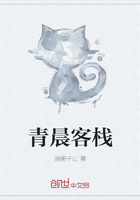WHAT IS TO BE DONE?
Berlin, May 10, 1940
The offensive in the West had begun. The Wehrmacht was in Holland and was heading for Belgium. Walking toward the Kottler, a restaurant and café on Motzstrasse in the Sch?neberg neighborhood, Fritz Kolbe could not help showing his agitated state: He kicked every pebble he saw and muttered incomprehensible words under his breath. Passersby turned their heads to look at this lunatic walking at full speed, but he kept going, paying no attention to his surroundings. With his black leather coat and his eyes glowing beneath the brim of his hat, he might almost have been taken for an agent of the Gestapo.
The Café Kottler was a place of relative freedom. It was possible to have quiet discussions there because the tables were set in alcoves and discreetly lit with candles. The privacy of discussions was ensured by the music of the zither player who livened up the atmosphere every evening. In short, it was a safe place. The owner was a trustworthy man, a Swabian who pretended to admire the regime but had his own opinions. Above the bar he had hung a sign intended to lull the Gestapo's curiosity: Der Deutsche grüsst mit 'Heil Hitler!', next to an ad for D?rnberg liqueurs.
When he reached the café, Fritz went directly to the table in back, in a little quiet corner where he usually sat. The table had been reserved, as always, in the name of a more or less fictitious "sports association" created by Fritz Kolbe-a method enabling him to avoid awakening the suspicion of the authorities, particularly because Fritz truly was an exercise enthusiast and he trained several times a week in various individual and team sports. The "association" assembled old childhood friends, most of whom he had met on Wandervogel hikes, with whom Fritz now played chess at the Kottler when they were not running in the Grunewald or Wannsee woods. Among them was Walter Girgner, his closest friend, a bon vivant with a talent for business (he had founded a clothing company that was now obliged to work for the Wehrmacht), Kurt Arndt, a police captain, and Kurt Weinhold (nicknamed Leuko), an engineer at Siemens. Even though he had set up house with a certain Lieschen Walter (about whom nothing is known), Fritz was leading the life of a confirmed bachelor.
"What's gotten into you, Fritz?" said Walter Girgner, seeing his friend's distressed look. "This time, the war has entered an irreversible phase," said Fritz. "We are in Holland and Belgium. And then what? France? England? Where is all this going to end? What revolts me is the knowledge that my own ministry has put the cream of its intelligence at the service of this new offensive. For months, the jurists of the Foreign Ministry have been assembling so-called evidence to demonstrate that Holland and Belgium are not maintaining their neutrality. Did you hear Ribbentrop's press conference this morning? To make sure that our neighbors do remain neutral, we invade them! What cynicism! They call it a 'protective measure'! If I had been consul at Stavanger, God knows what role that would have had me play in this history of madmen."
Fritz and his friends agreed that enough was enough and that something had to be done, but what? Since they had renewed their acquaintance in November 1939, they had asked themselves this question every week, and they always ended up feeling as though they were going around in circles and about to go mad ("Sometimes I was doubting who was mad, whether all the others or myself," Fritz explained after the war).
"Speaking for myself, I can no longer tolerate these lies," said Fritz. "We have to do everything to prevent this band of assassins from continuing to act. Have you read the latest news? A couple has just been taken away by the Gestapo after being denounced by their own daughter! A chicken thief has been sentenced to death by a special court, in the name of the new provisions of war legislation and the fight against 'parasites of the people.' But it's the Nazis who are a band of vermin and crooks. Everyone agrees, speaking like me and saying that this war is insane, so why doesn't anyone do anything, why?"
There was an awkward silence. Fritz had an idea. The group ought to distribute anonymous leaflets, write counter-propaganda to denounce the official lies. Tomorrow, he would set to work at home. Writing with his left hand and wearing gloves, in capital letters, he would set down expressions like the ones that circulated in the Café Kottler at night: "What is pessimism? Not winning the war and maintaining Nazi power. What is optimism? Losing the war and seeing the Nazis go." Or else, inspired by a popular song: "Everything flees and everything leaves / Soon the end of Hitler and the party." These little squibs would be sent to big companies, big stores, and other places likely to ensure that their content was widely disseminated. They would be accompanied by a little note along these lines: "If you don't agree with this message, please bring it to the nearest police station." The idea was to stir up trouble in people's minds. Above all, they could not get caught. They would have to multiply precautions when carrying the leaflets, never send them more than once from the same place, learn to hug the walls at certain late hours.
Pleased with his resolution, Fritz did not talk about it immediately to his friends. He preferred to wait until there were fewer customers in the room and he had only familiar faces around him. While waiting, he began to recite aloud a few words by Friedrich Schiller: the knights' song from Wallenstein's Camp, which he knew by heart because he had sung it often when he was a Wandervogel: "Till life has been staked for the rise or the fall / Your life will never be won at all." Fritz noted with satisfaction that these words had a certain effect around him. He knew that Schiller was looked on favorably by the Nazis (unlike Goethe, whose Masonic inclinations made him suspect), and he was taking no risks by quoting some lines aloud. He called to the zither player to ask if he could play the melody of the knights' song. The musician agreed for a small tip. The little group, followed by the whole café (including policemen in uniform who were among the customers that evening) intoned the martial air, too well known to be suspected of the slightest subversiveness: "Freedom has vanished out of the land, / Only masters and slaves will you find; / Deceit and treachery now command / Among craven humankind."
While the rest of the café continued singing happily, Fritz's small group of friends drank a toast in their corner, whispering conspiratorial words: "for the king," instead of "to your health," and "devil take them!" Going home that evening, Fritz had the impression that he had become the leader of a little seditious group. His friends had enthusiastically welcomed his plan to distribute leaflets. They would soon meet at Fritz's apartment on Klopstockstrasse to write them. The danger of underground action was exciting. "In battle, man still has his value," Fritz said to himself, thinking about a line from Schiller.
Berlin, June 1940
German troops entered Paris on June 14, through the Porte Maillot. Hitler had won his bet and now had himself called the "greatest general of all time." The order to hang out the flags came to all the cities of Germany two days later. The triumphal display was extraordinary. Each parade was succeeded by another, and brass band followed brass band. The voices of children could be heard singing songs with joyous refrains. The people thought that the war was over and saw that Hitler had gotten everything he wanted: Danzig, Memel, the western regions of Poland, Alsace-Lorraine, Saarland, Eupen, and Malmédy, not to mention Austria and Sudetenland. The shame of the Treaty of Versailles had finally been washed away. It would finally be possible to live in peace. Even the most skeptical generals had come to believe in the führer's genius. For all those like Fritz Kolbe who had hoped for a gradual weakening of the regime, this incredible victory over France meant dismay and profound bitterness.
After eight months at the ministry, Fritz observed with a mixture of satisfaction and dread that he provided complete satisfaction to his superiors, in professional terms. He was beginning to feel like a little soldier caught up in an immense war machine. "Am I meant, finally, to work with them?" he asked himself in anguish. He remembered a hurtful remark by Ernst Kocherthaler: "You could have been a Nazi!"
Speed, precision, discretion, these were the qualities attested to by his superiors. As a result, one of Ribbentrop's closest associates, Martin Luther (no relation to the father of the Reformation), had brought Fritz into his office to handle a task with which he had experience: processing requests for visas for foreign travel. This time he was not dealing with internal ministry files, but with requests presented by people outside the foreign ministry, notably party members, high government officials, and other eminent public figures. The multiplicity of authorizations that had to be obtained made Fritz Kolbe's work truly exhausting.
Martin Luther was not a career diplomat. He came from the "Ribbentrop Office" and enjoyed the minister's full confidence. With his round glasses, slightly pudgy face, sniggering smile, and bull neck, he in no way resembled the classic appearance of the foreign ministry. He was a member of the SA and, in fact, one imagined him much more at ease in street fights than in composing diplomatic cables. He was known as the "moving man" because he had been the head of a moving company in the 1920s (he had in fact met the foreign minister when he moved Ribbentrop's furniture to the embassy in London). A specialist in financial manipulations, Luther had an extraordinarily extensive list of contacts.
He was one of the most feared figures in the ministry. The "German" department of which he was in charge had been established in May 1940 and was the exclusive umbrella department for many highly sensitive matters: relations with the NSDAP and all its subsidiary organizations (in competition with the "Organization of the Party for Foreign Countries" or Auslandsorganisation, also housed in the ministry); relations with the SS and various secret services of the Reich; the "Jewish question," "race policy," foreign propaganda questions (in competition with Goebbels's ministry), matters related to foreign workers conscripted by force to work in Germany, and so on. As though more clearly to establish the independence of the "German" department from the rest of the ministry, its offices were not located on Wilhelmstrasse but in a building some distance away, on Rauchstrasse.
Fritz Kolbe detested Luther. He also hated his subordinates, notably one named Franz Rademacher, whom he sometimes encountered in the canteen. Pudgy, even a bit fat, Rademacher did not have the savoir faire of a high-ranking diplomat. He was the specialist on the "Jewish question" on Ribbentrop's staff. In the spring of 1940, the "settling" of that question was a matter of intense reflection at the foreign ministry, which was attempting to secure a position of leadership in the matter and wanted to show that it put forward ideas for how to implement "the annihilation of the Jewish race in Europe." All proposals were centralized in the "D III" (Deutschland III) office of Franz Rademacher, who had the diplomatic rank of secretary of the legation. Inside the ministry, Rademacher's office was simply known as the "Jewish desk" or Judenreferat, just as there was a "French desk" and a "Russian desk."
When Fritz Kolbe took up his duties in the "German" department, Franz Rademacher was totally absorbed in the "Madagascar plan." This plan envisioned the deportation of the Jewish population of Europe to that Indian Ocean island, then a French protectorate. Fritz Kolbe, suddenly at the heart of the regime, had a hard time behaving himself. On several occasions, important figures had occasion to complain about him to Martin Luther. "Who is that petty official who doesn't even give the Hitler salute when we come in?" Exasperated by these remarks, Martin Luther appeared one day without warning in Fritz's office and gave him a warning as brief as it was threatening: "Kolbe, I wanted to tell you that I will not stand for one more lapse from you. You wouldn't be the first to disappear."
Fritz felt a chill run down his spine. From that moment on he became more careful and faded into the background. He decided to make himself known exclusively for his inordinate love of the game of chess. He was sometimes seen replaying for himself great matches of the past, using a handbook and a pocket chess set. He scribbled descriptions of the greatest tournaments on little scraps of paper that he never wearied of rereading. Once he was even heard to recite by heart-as though it were a poem-the opening of one of the great matches between Wilhelm Steinitz and Emmanuel Lasker at their celebrated 1896 Moscow tournament: "1. d4 d5, 2. c4 e6, 3. Nc3, Nf6, 4. Bg5 Be7, 5. e3 0–0, 6. Qb3 Nbd7, 7. Nf3, c6, 8. Bd3 dc4, 9. Bc4 b5…" Fritz established an amateur club that met in the ministry canteen. He did not hesitate to play matches with the most hardened Nazis. He took his revenge in the game, and once again he was taken for a likable eccentric.
Fritz's office door was always open. He saw an enormous variety of people. The Nazi occupations in Europe caused a huge movement of specialists of all kinds and a proliferation of requests for foreign visas. There were lawyers traveling to supervise and manage the confiscation of Jewish property in the occupied countries, experts in the history of art who went to select works in France. Some ministers, like Ribbentrop, G?ring, and Rosenberg, had teams specializing in foreign "requisitions" (works of art, horses, wine). There were representatives of every profession: journalists appointed to set up a pro-German press throughout Europe, directors of cultural institutes sent to conquered territories, archivists, lecturers, architects…
One day toward the end of the spring of 1940, a pretty woman entered Fritz Kolbe's office and asked for a visa for Switzerland. It was rare for a woman to appear in the corridors of the Foreign Ministry. Fritz Kolbe gave her a form to fill out and had her sit at a little desk facing his own. While she wrote, he took the opportunity to scrutinize her. The visitor had style: dressed in white, she had entered the room wearing an elegant wide-brimmed hat. It was immediately apparent that she was a woman of quality, even displaying a certain distance from the people she addressed, the antithesis of a "Lieschen Müller," the generic name for a Berlin shopgirl. She wrote quickly, crossing words out. Obviously, she was swamped with work and in a hurry to leave. About forty years old, like Fritz, she introduced herself as a personal assistant to Professor Sauerbruch. "Not someone likely to have children," thought Fritz as he looked at her. He had immediately understood that she was one of those modern ambitious women who had difficulty seeing themselves in the role of housewife reserved for them by the Nazis.
As he watched her fill out the document, Fritz managed to read from a distance what she was writing. He learned that her name was Maria Fritsch, that she was unmarried, and that she was born in 1901 in Bütow, in Pomerania. A Kashubian woman, straight and even a little rigid like many people of the region, Prussians who had become a little Slavic because they lived in mixed German-Polish territory. "Pommerland?" he asked her in the local dialect, and he added-still in plattdeutsch-a famous line of poetry to make her notice him: "Wo de Ostseewellen trecken an den Strand?" ("Where the Baltic Sea waves kiss the beach?"). The woman's face suddenly became more cordial. "Dor is mine Heimat, dor bün ik tau Huus" ("There is my country, there I am at home"), she countered immediately, still in low-German dialect. An onlooker would have had difficulty understanding much of the exchange that followed. It sounded like a slightly drunken conversation in untranslatable dialect. Only a few words, used by Fritz in an ironic way, could be recognized. He imitated a speech by Hitler in plattdeutsch, barking out Dütschland!, F?hrer!, Vaderland!, making his visitor burst out laughing.
Already, she was getting up to leave. Fritz managed to delay her a little longer: the form was incomplete, a letter had to go with it. She hastened to write it, but hesitated for a moment before giving it to him. "Should I sign with 'Heil Hitler'?" she asked him, her pen still uncapped in her right hand. Fritz Kolbe did not answer. She looked up, worried, and encountered an almost threatening look. "Look here, don't think of it," he finally said, "do you know where we are?" A quick exchange of smiles and there was now complete trust between the two.
Fritz wanted to see her again. He asked Maria Fritsch whether it would be possible to make an appointment to see Professor Sauerbruch. He did a lot of sports-boxing, running, bicycling-and always felt severe pain in his knees, despite a surgery he had had in 1933. "I'll see what I can do," she answered, "he is swamped, but I'll try to slip in an appointment for you." With that, she disappeared down the corridors of the ministry.
Ferdinand Sauerbruch was a great doctor. The surgical procedures that he invented were recognized around the world. In particular, he had conceived a revolutionary method for opening a patient's rib cage without provoking a collapse of the lungs (the patient's torso was placed in a low-pressure chamber, while his head remained in the open air). He had also created an artificial hand that could be moved at will.
Independently of his enormous talent, Sauerbruch was to the medicine of the Third Reich what Gustav Gründgens (the man on whom Klaus Mann modeled his character Mephisto) was to the theater of the time. Like him, he probably would have emigrated and would have become a fiery antifascist "if only he had been given attractive offers abroad," according to Klaus Mann. Instead, the professor had chosen to pursue his career in Germany as though nothing had changed. At the age of sixty-five in 1940, the "Professor Doktor" was a prince of medicine, covered with honors, not lacking in self-importance or even vanity. He was head of the largest hospital in Berlin, the Charité. He sometimes exercised his art like a chess champion, carrying on several operations at the same time in different operating theaters. He taught in amphitheaters filled with students and admirers of both sexes. He was asked for his opinions throughout Europe, and he counted several crowned heads among his patients.
Sauerbruch had never taken care of Hitler, but the dying Marshal Hindenburg had called on him for his prostate, Goebbels for his appendicitis, and Robert Ley-head of the "Labor Front," which replaced the dissolved unions-his hemorrhoids. Sauerbruch had contacts high up in the Reich chancellery. One of the doctors closest to the führer, SS-Obersturmbannführer Karl Brandt (in charge of the euthanasia program for the mentally handicapped), was one of his former pupils. In charge of medical matters for the principal scientific institutions of the Reich, Professor Sauerbruch supported some of the worst medical experiments carried out in the concentration camps.
The Nazis needed to keep on their side major intellectual and artistic talents like Ferdinand Sauerbruch. Not affiliated with the Nazi Party, the surgeon was an emblem of respectability for the regime, which granted him great freedom of speech and action. He was a member of the prestigious "Wednesday Club," an independent intellectual group that continued to hold regular meetings despite the war. It was one of the few forums for discussion where one could still escape from the surveillance of the Gestapo. They didn't engage in politics at the Wednesday Club, although they did not avoid various subjects related to the present time. Among the figures who were members of the club were both the biologist Eugen Fischer, one of the major theorists of eugenics, and General Ludwig Beck, former army chief of staff, who had resigned in August 1938 to protest against Hitler's planned invasion of Czechoslovakia.
Fritz Kolbe did not yet know, when he met Sauerbruch for the first time, how useful he would find the Charité hospital and the protected status of the surgeon.















